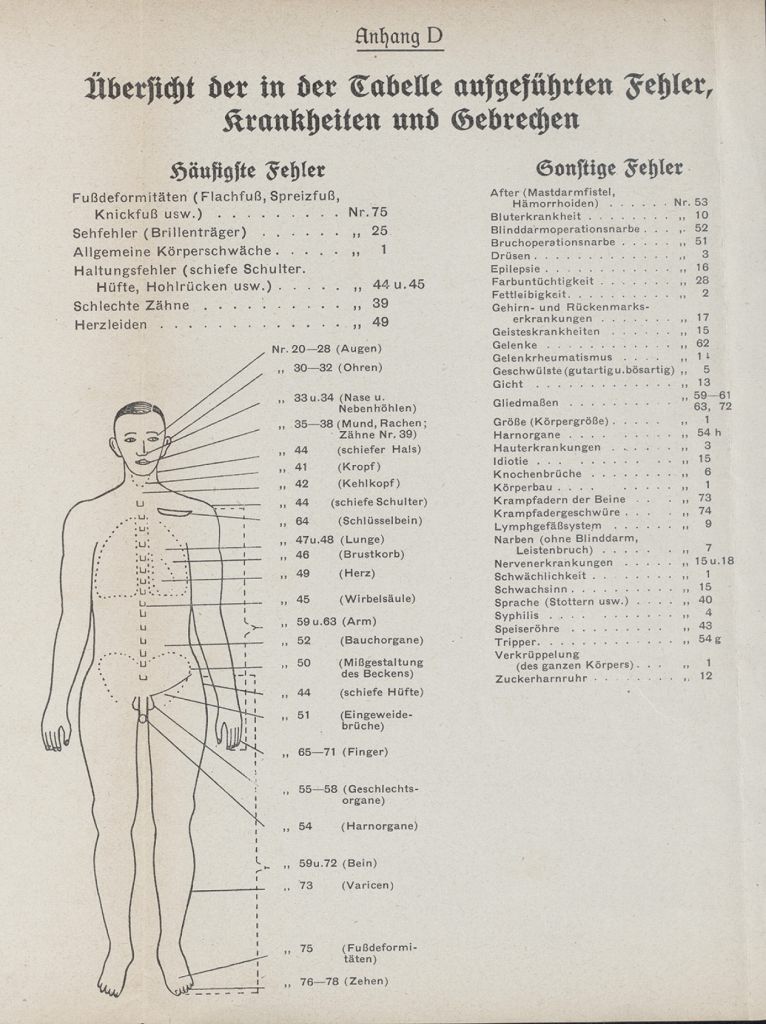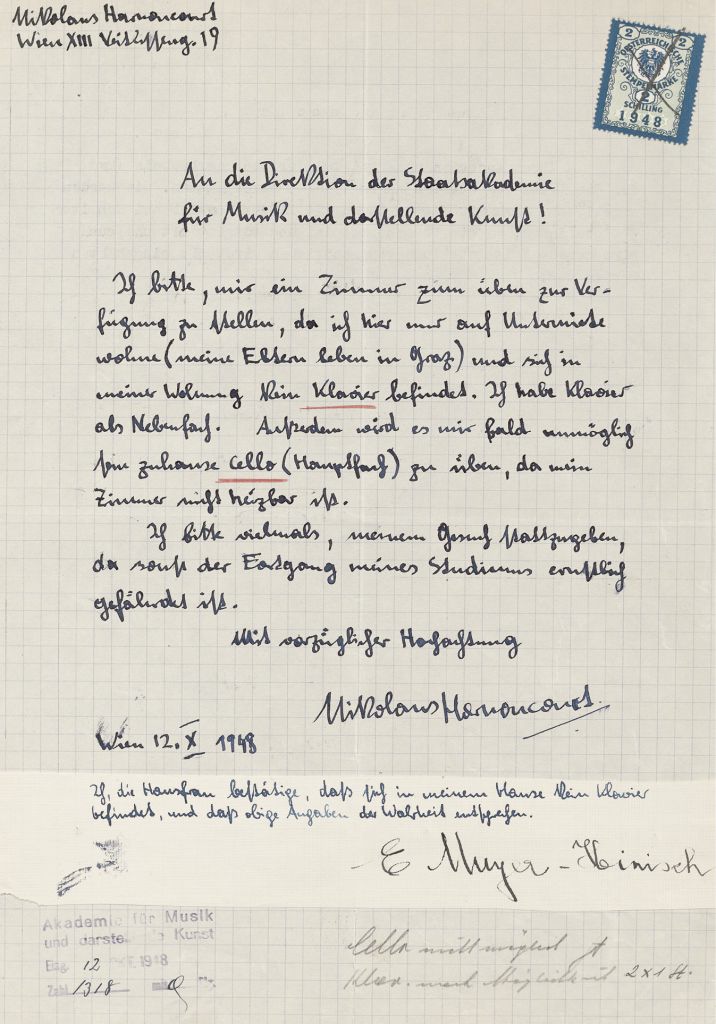The mdw* in Austro-Fascism, National Socialism, and Post-Nazism
For many years, the mdw has played host to in-depth scholarship concerning its own history as an institution during the Austro-Fascist and National Socialist eras—and it was in the interest of continuing this work that the internal mdw research collective Klingende Zeitgeschichte [Resonating Contemporary History] was established in 2019. As a cooperative effort between the mdw Archive and the Department of Musicology and Performance Studies (IMI), this collective devotes itself to central aspects of our university’s 20th-century history.
An exhibition entitled Klingende Zeitgeschichte in Objekten. Die mdw* im Austrofaschismus, Nationalsozialismus und Postnazismus [Resonating Contemporary History in Objects. The mdw* in Austro-Fascism, National Socialism, and Post-Nazism], conceived to mark this year’s 85th anniversary of Austria’s annexation by National Socialist Germany, is currently being presented to the public. On view at the University Library through January 2024, it employs a multimedia presentation of historical objects that serve to highlight the institution’s 1933–1955 history in myriad ways. This exhibition’s numerous thematic tie-ins make it possible to approach the history of the University in terms of the most varied aspects and goes on to combine these to form an overall impression. A golden thread running throughout the presentation is its investigation of the relevant historical protagonists: while many university community members were expelled and forced to flee, others profited (some of them quite handsomely) from the changed political conditions. Surveying the entire historical period encompassed by this exhibition allows one to observe numerous continuities in terms of individuals who remained influential figures at our institution even long after the war had ended. Further strands of this presentation feature questions concerning artistic repertoire, the ways in which marginalised groups were dealt with within the mdw, and everyday student life. Just how far the National Socialist period’s influence extended beyond 1945 can be seen not least in discussions on the rehiring of displaced employees or the restitution of stolen property, both of which are examined in detail here.

The complexity of the theme (and era) at hand does, of course, preclude attempting to give any of these aspects exhaustive treatment in an exhibition such as this one. The point, therefore, is much rather to thematise the knowledge concerning the University’s 1930s-to-1950s history generated and presented by the research collective and confront it with those gaps that still exist—which, in view of the occurrence being remembered this year, is meant as an urgent appeal for the facilitation of further research projects aimed at these gaps’ amelioration. Here, a special aspect to which attention must be drawn is the need for extensive study of the immediate post-war period—which, particularly where personal (dis-)continuities are concerned, has yet to be undertaken. Alongside adding further depth to detailed biographical studies, however, the research collective is now planning to devote special effort to making possible comprehensive provenance research at the mdw. The preliminary scholarship necessary for this has already begun, and several objects in the present exhibition serve to highlight the urgency with which detailed analysis of the provenance and ownership of books, sheet music, and musical instruments needs to be conducted.

A further gap that has yet to be filled is the view towards the outside, for which reason the then-Reichshochschule is to be placed within the context of other German-speaking arts universities and conservatories. How, for example, did the National Socialist state’s centralised cultural and educational policy affect universities of art and music? What parallels and differences existed? And did any active exchange occur between the individual institutions, or did their respective members encounter one another more as rivals? These and numerous other questions are covered by the present exhibition, which opened on 9 November 2023—the 85th anniversary of the November Pogroms (the so-called Kristallnacht). All of the addressed content is available in more detailed form as an online exhibition presented in English and in German that doubles as a virtual exhibition catalogue offering greater thematic depth.
Also worthy of mention here is the upcoming production of a scholarly and artistic podcast, which will feature selected content from this exhibition in a series of episodes that will be released beginning in the autumn of 2024. Produced thanks to a transdisciplinary collaborative effort in the context of university coursework, this podcast will make it possible to both see and hear the historical sources and objects.
Event tip:
Klingende Zeitgeschichte in Objekten. Die mdw* im Austrofaschismus, Nationalsozialismus und Postnazismus [Resonating Contemporary History in Objects. The mdw* in Austro-Fascism, National Socialism, and Post-Nazism]
through 26 January 2024, mdw’s University Library, Anton-von-Webern-Platz 1, 1030 Vienna
To the web exhibition: repo.mdw.ac.at/klingende-zeitgeschichte

